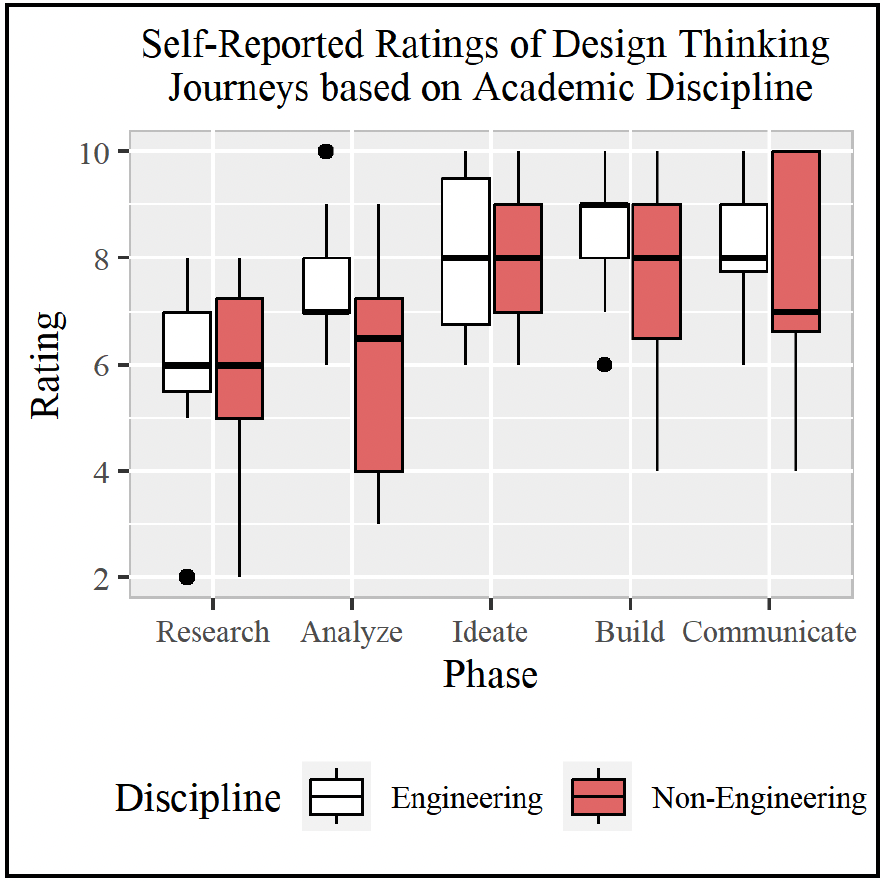Abstract
Practitioners’ and students’ experiences while engaging in design thinking and human-centered design activities is well understood to shape outcomes of those activities. However, an understanding of the trajectory of experiences that characterizes the design thinking process, and relates experiences to outcomes, is still emerging. To contribute to this knowledge area, we examine six student teams engaged in a project-based learning course, and seek to understand each participant and team’s experiences with the design thinking process across each design phase, through discrete assessments, and holistically, through reflections on the entire process: what we term journey mapping the students’ experiences. This approach reveals two preliminary findings about the trajectory of novices participating in design thinking work. First, we note that the beginning, research-oriented phases of the design thinking process appear to offer a less positive experience than later phases. Second, we note that students of engineering and non-engineering backgrounds have differing retrospective reflections on their design thinking experiences. These findings suggest that deeper engagement with particular design thinking phases, and an awareness of disciplinary experience, can positively shape the experiences of design thinking practitioners. Also, these results suggest that the significant factors impressing upon a participant’s design thinking experience may change throughout the process.
